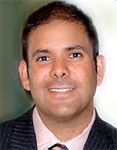Personalized prescribing: Infusing the digital age
How much decision power should patients have in today's digital age?

How much decision power should patients have? And in balancing an optometrist's clinical judgments against the patient's real-life needs and preferences, do optometrists ever cross the line from collaborating to capitulating?
Is it the optometrist's job to recommend vision care options, but let the patient make the final choice-a choice potentially influenced by advertising, Internet coupons, and discount offers?

Dr. Bloomenstein, of Scottsdale, AZ, even chafes at the word "recommendation." "I don't make 'recommendations.' I tell patients what's best for them. When I think of 'recommending,' it's like the patient asking a waiter what they should have."
Christine Sindt, OD, of Iowa City, IA, sees a partial silver lining to consumer promotions: "There's no doubt that direct-to-consumer marketing has affected all of us," she said, "but it also drives patients to our practice."
The 'Pepsi Challenge'

Dr. Sindt has no use for comparative monocular trials, aka the "Pepsi Challenge." Sending patients off for 2 weeks with different types of lenses in each eye, she noted, results in "a patient who has a lens they like in one eye and a lens they don't like in the other eye."
"Do you then refit the one eye and have them come back in 2 weeks again, so you can make sure that that lens is working on the other eye?" asked Dr. Sindt. "Do you just assume it's going to be the same?"

Kerry Giedd, OD, of Orlando, FL, agreed. "In a typical practice setting, you can't argue that there's one lens that works for everybody," she said. Although Dr. Giedd feels that eye-care practitioners need to assert their position of authority, "you can still engage patients in the decision."
Newsletter
Want more insights like this? Subscribe to Optometry Times and get clinical pearls and practice tips delivered straight to your inbox.